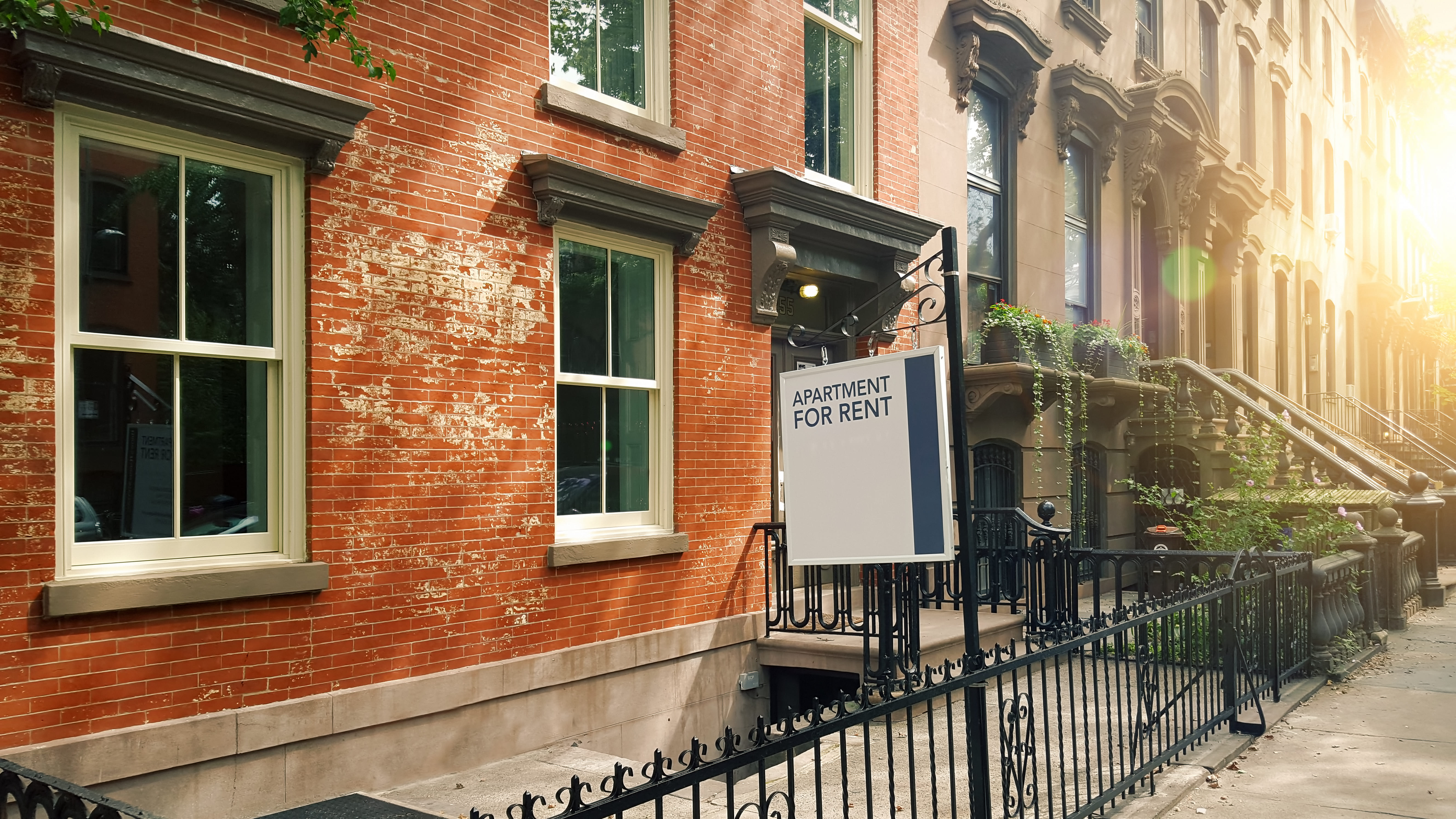

Renting your first apartment can be an overwhelming experience. It’s hard to know where to start your rental search, how to budget for a big move, and all of the red flags to look out for when you view an apartment for rent.
But these five tips straight from the Real Homes team, which collectively has a whopping 33 years renting experience (with glowing landlord references to prove it) will help ease you from living at home with family, or a dorm with friends, to full-on apartment living successfully.
Think of us as your Real Homes big sisters, here to help you with everything from budgeting tips, finding your first apartment, watching out for rogue landlords, and once you’ve secured your first big city home, advice on where to save, and when to splurge when decorating your first apartment.
Essentials when renting your first apartments
Renting means preparing for the worst and hoping for the best in your new small home. Whilst we have a fix to boost terrible water pressure (our best high pressure shower head guide will save your sanity), it's our combined real-life rental knowledge and experience across more than 20 rental apartments (and three countries) that'll help the most.
Where we have recommended any specific products, we have detailed why we recommenced our highly-rated picks from trusted retailers so you can decide best where to splurge or save.
All prices were correct at the time of publication.
1. Budgeting well is key

I wish I knew I’d be lumbered with yet another twin bed for my first year outside of dorms because I made poor budgeting decisions — cue the tiny violin — but now I've learned that lesson the hard way, I won't make it again.
Whilst we're not financial advisors, the wider Real Homes team has years of renting experience between us and we can offer sage advice on how to avoid rental scams, as well as budgeting smartly for your apartment furniture essentials.
Before you commence your apartment search, think about your rental budget and how much you can realistically afford to spend on living expenses each month, which will include utility bills, grocery costs, and transportation.
Don’t forget to take into account an initial security deposit. Most landlords will require this fully refundable upfront payment to secure your apartment and its purpose is to cover any damages that may occur during your tenancy. Expect to cough up between one and two months worth of rent in addition to your usual monthly rental cost.
If your new pad comes unfurnished, keep the added cost of furniture in mind. We’ve got plenty of recommendations for the very best couches for small apartments, as well as Amazon's best budget friendly bed frames.
In fact, Amazon is a great place to shop for home furnishings as they offer a speedy delivery service and refunds are simple if you make any pesky measuring mistakes or simply, hate the item when it arrives. With plenty of sales, including Amazon Prime Day 2024 approaching in July, big ticket furniture items from the retailer are a sound choice.
Real Homes editor Punteha van Terheyden furnished her first apartment from scratch. She says, "I was moving out of my parents' home and in with my boyfriend and had a lead time of six months. The first thing I did was make a comprehensive list of what furniture, appliances and other items we had between us, including our bedroom and dining furniture and decided what we'd keep or sell.
"Then, I started a room-by-room list, made wish-lists of items I wanted compiled with plenty of time spent reading customer reviews, and figured out the budget we had between us for everything we needed."
Punteha signed up to retailer newsletters and as soon as their flash or seasonal sales popped into her inbox, used her allocated budget for shopping to grab the things she and her partner needed at discount.
She adds, "Over those six months, I stashed all my buys in a family' member's spare room and attic so by the time we came to moving in, we had absolutely everything we needed!"
Her top tip when compiling your furnishings list is to pick the best cookware you can afford as it really makes a difference and will save you having to replace them every six to 12 months like she did at the outset.
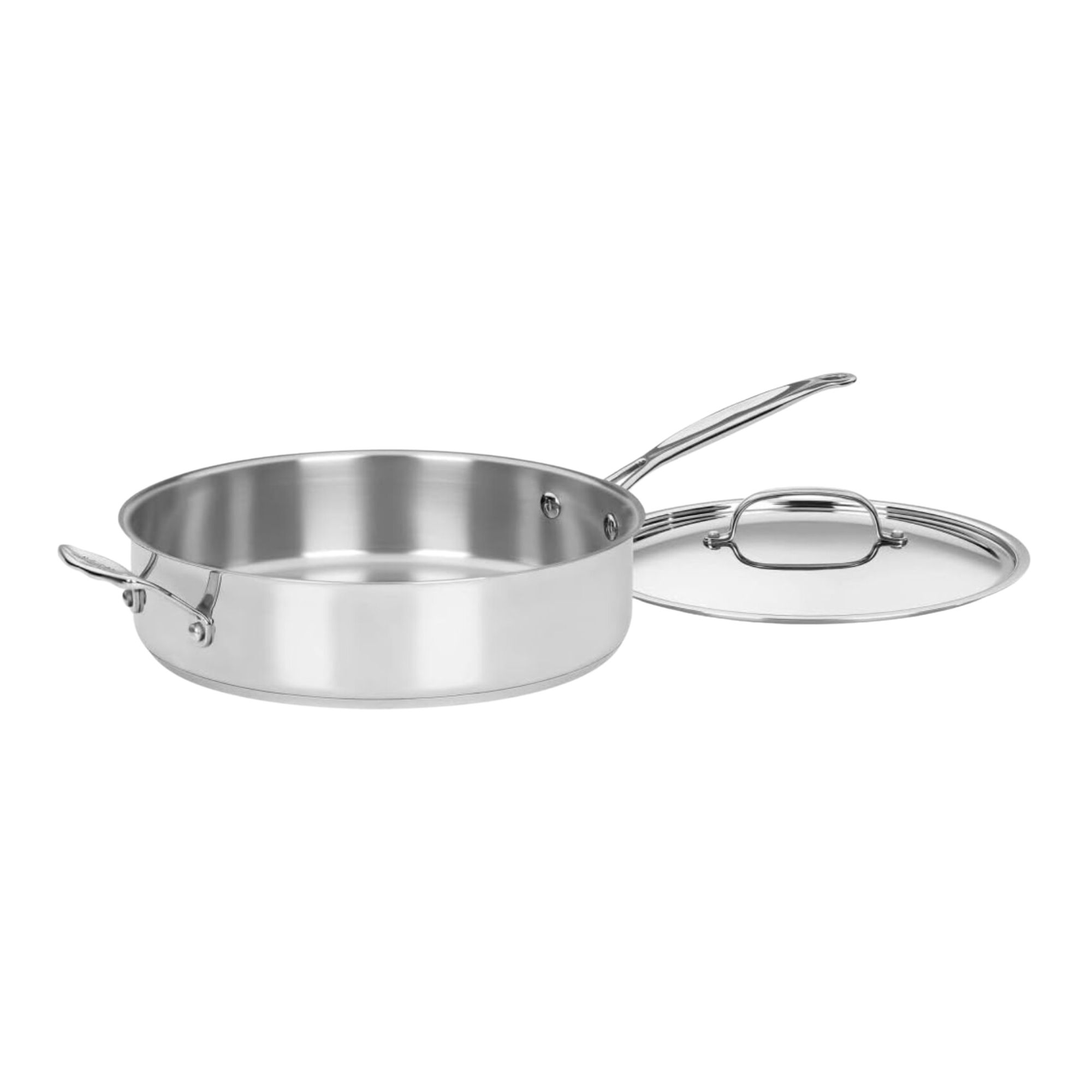
Price: $59.95
It's easy to see why shoppers have awarded this staple from Cuisinart 4.7 out of 5 stars. It's a professional-level pan that evenly distributes heat and adapts to a variety of cooking needs, from searing to simmering.
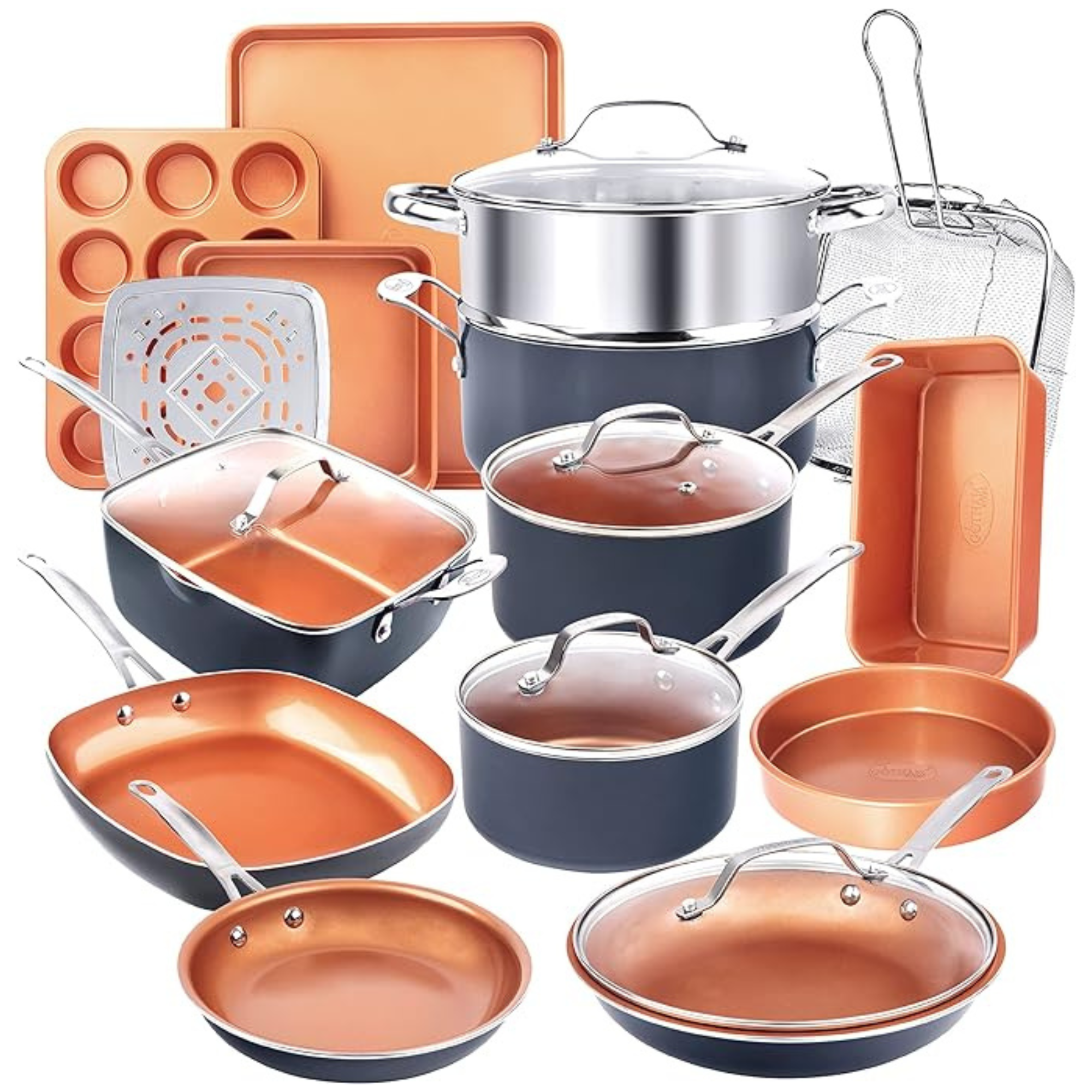
Price: $148.71
This cookware set includes everything you will need to kit out your new kitchen including sauté pans, baking sheets and sauce pans. It's rated 4.5 stars out of over 10,000 reviews, praising its appearance, non-stick quality, and value for money.
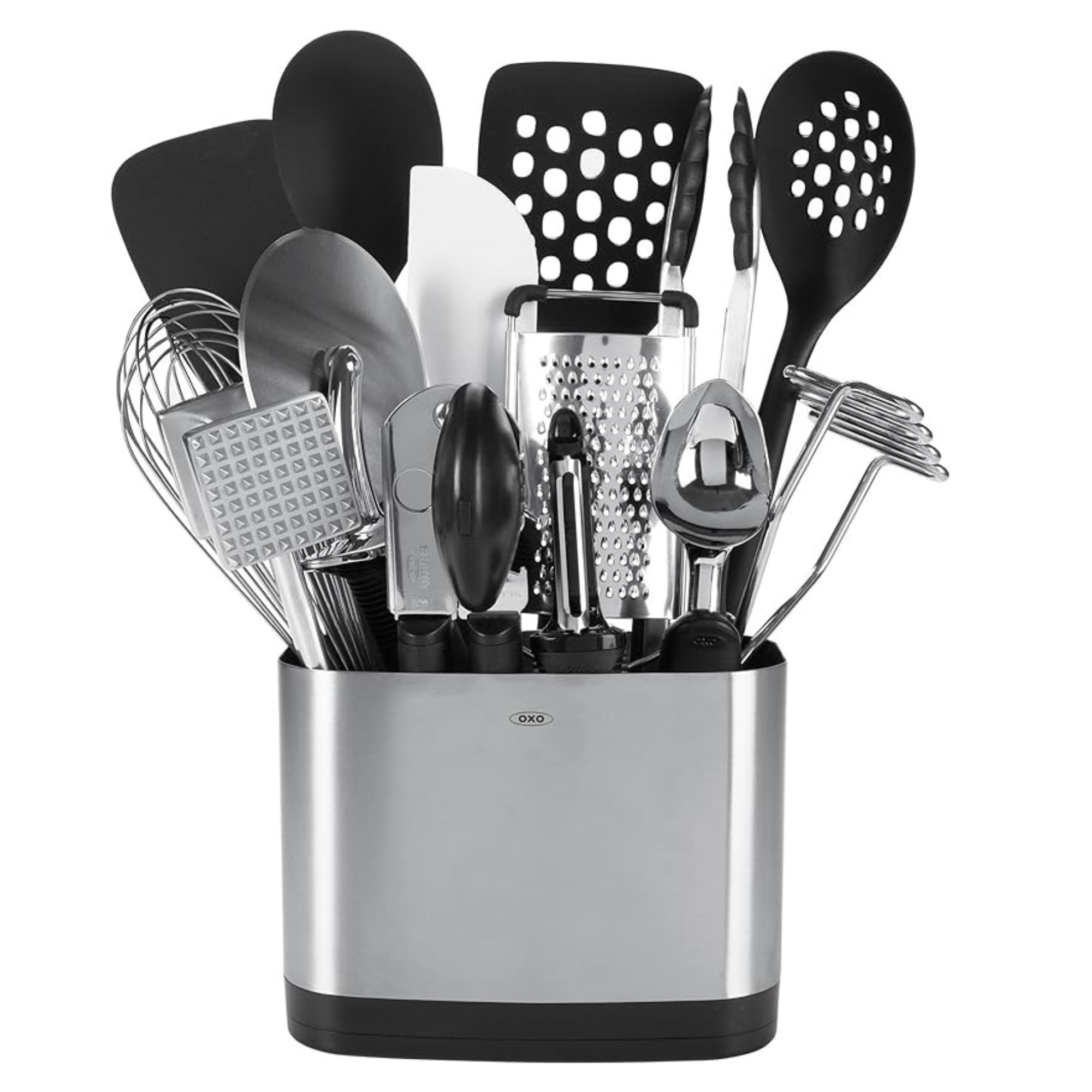
Price: $124.12
This 4.8 star rated OXO 15-piece kitchen utensil set also includes three measuring jugs of varied sizes, as well as a fully stocked, chrome utensil pot. Customers commend the sets 'quality, value, performance, and assortment'
If you don't have months of prep time, don't fret. Emily Lambe, deputy editor at Real Homes, didn’t just move to a bustling city, but an entirely new country, and is uniquely qualified to comment on finding and furnishing a home in an entirely new place.
She says, “It was a bit overwhelming to start completely from scratch. All I had with me were the clothes and personal items I brought with me, so getting everything I needed for my first apartment took time. Don’t be in a rush to buy everything all at once. If you panic buy everything in one go, you may regret your choices down the road, once you have a little more budget to work with. Just get the absolute necessities and work your way up.”
It’s also a good idea to get a feel for the place before going all-in when buying furniture and decor. “I bought a set of garden furniture and used that in my living room for three months,” says Eve Smallman, content editor at Real Homes.
“By doing this, I was able to assess what furniture I felt would be useful in the space. This also allowed me to take my time kitting it out with essentials and finishing touches. Enjoy the journey, rather than rushing getting everything at once!” she adds.
I am personally an avid cook so kitting my kitchen out with essentials when I moved was a major priority (and, perhaps, some non-essentials. Hello Kitchen-Aid stand mixer, my beloved).
I agree that quality cookware is a sound investment. My first choice is the Hexclad frying pan, available on Amazon, because, not only is it a highly rated non-stick piece of equipment, but it’s both dishwasher and oven safe due to its metal handle.
It's also a good idea to make sure you have all the utensils you need to cook, such as grabbing a set like the Staub 11-Piece Silicone & Wood Handle Cooking Utensil Set from Saks.
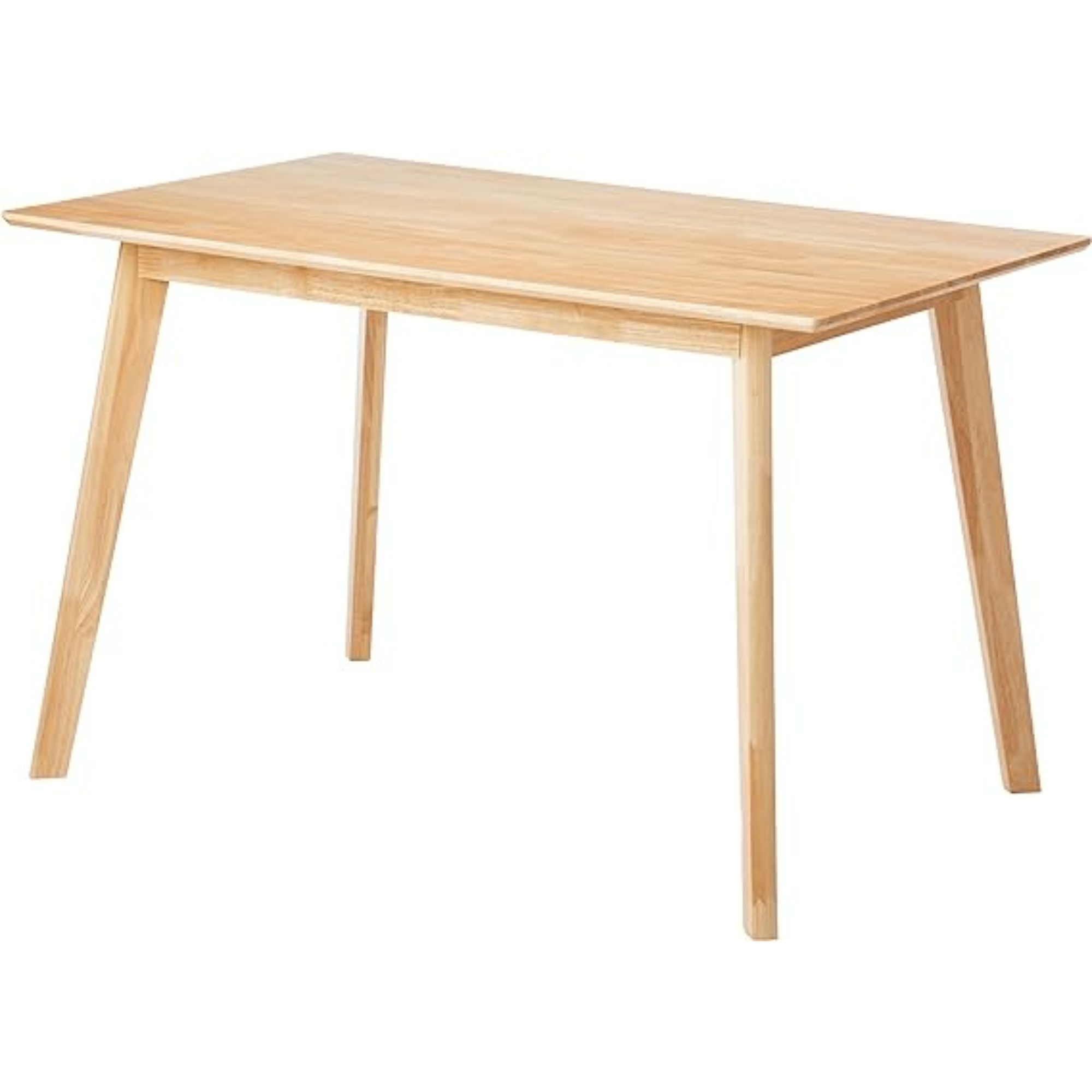
Size (in.): H29.5 x W47.2 x H29.5
Made from: Rubberwood
Price: $185.33
Buyers rate the quality, appearance, value, and size of this FSC-certified solid wood table. They mention it is stable and has a nice finish.
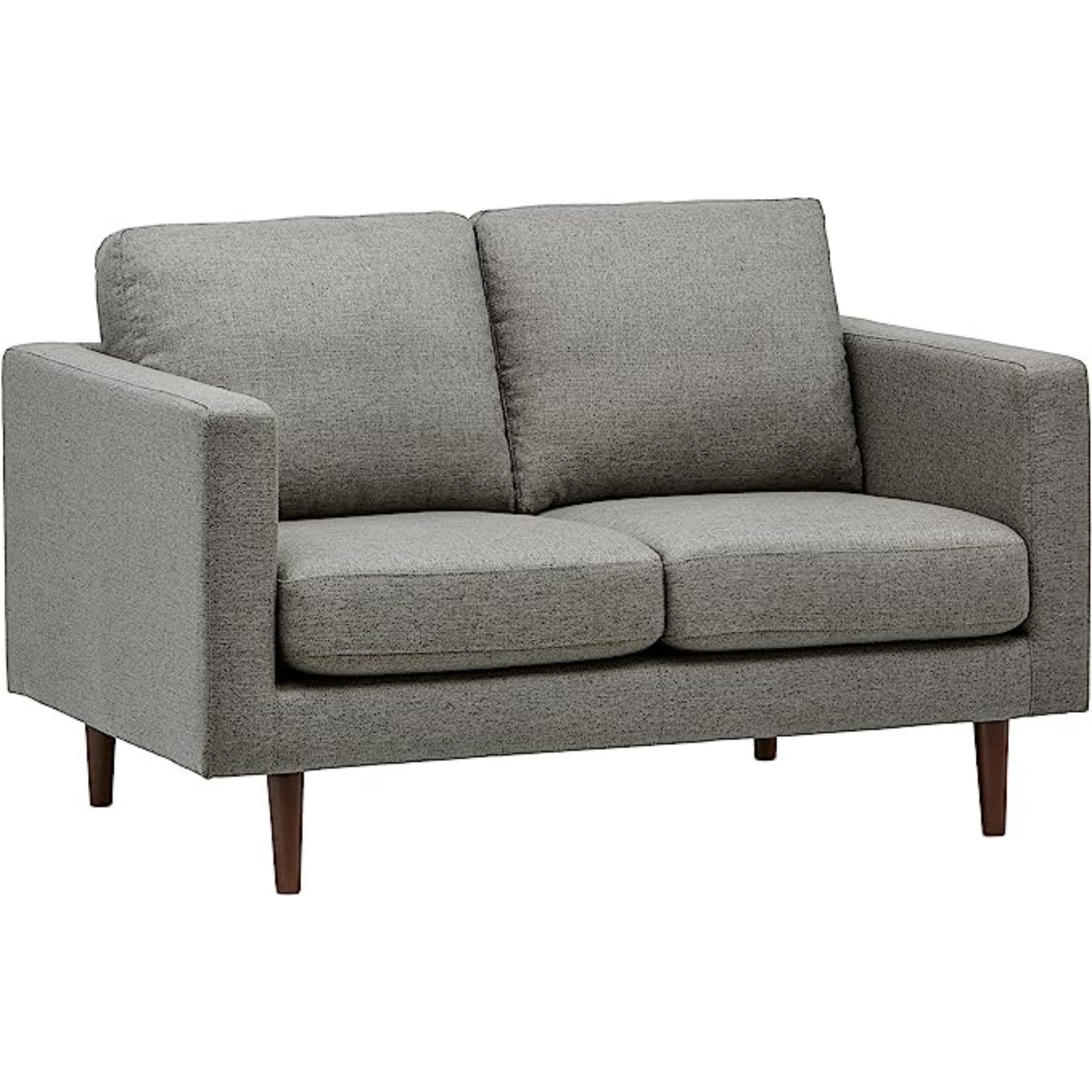
Size (in.): H35.4 x W56.3 x D34.6
Made from: Polyester and Beech wood
Price: $795.68
Amazon customers say this two-seater couch is super comfortable to snuggle up on, being firm enough to support, but soft enough to sink into. The color, height, and clean lines of this couch make it an aesthetically pleasing piece of furniture and it's a great first couch for a new home with space to stash items underneath: key in small space living.
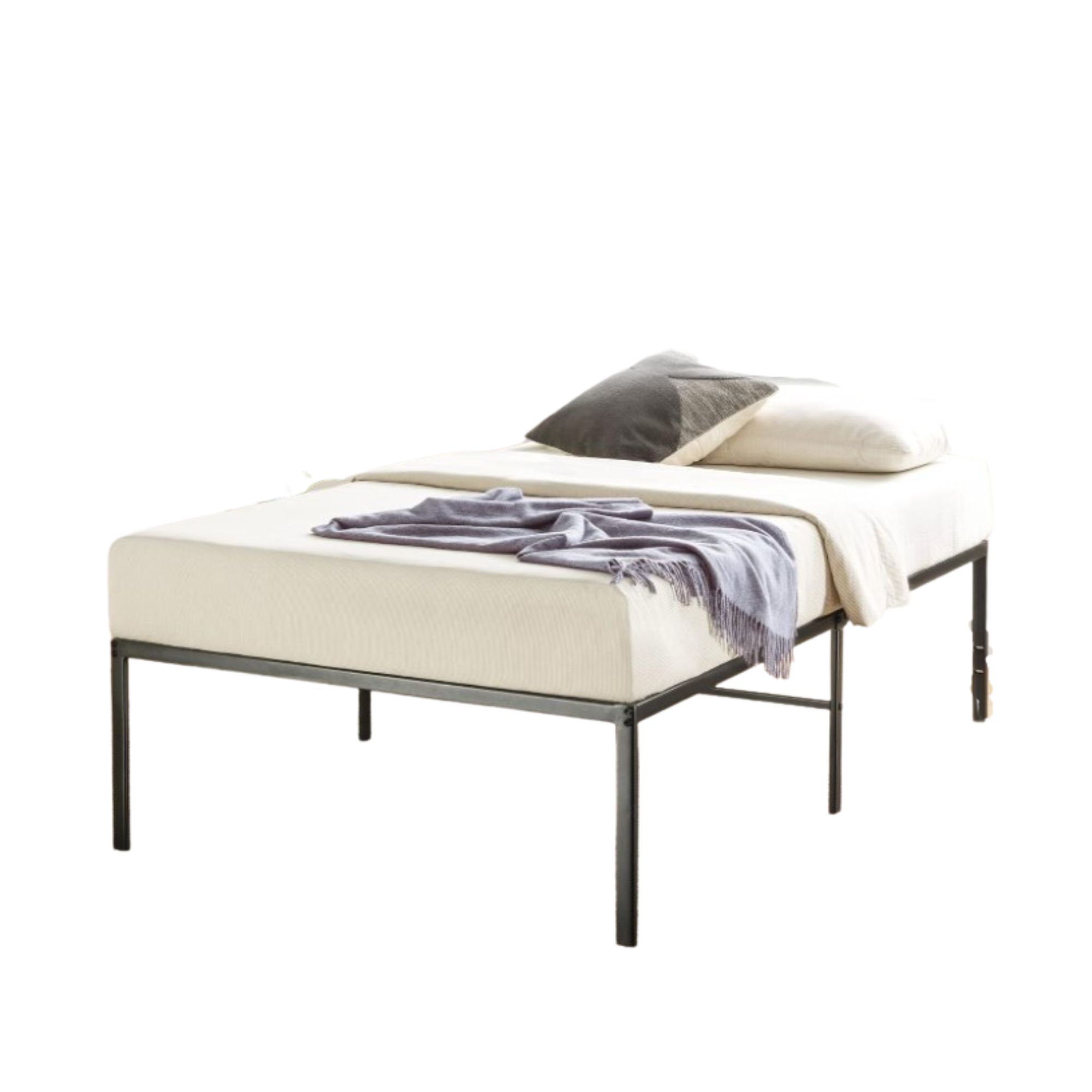
Sizes: Six options
Made from: Steel
Price: From $55.99
Sometimes you just can’t go wrong with a simple and effective bed, as this steel Best Price piece proves. This is Amazon’s overall pick for best beds, with over 32,000 (yes, really!) five-star reviews praising its heavy-duty frame and elevated design for easy bedroom storage underneath. It comes in twin, full, queen, king, and Cali king — the size and pricing we’ve stated above are for the twin.
2. Old buildings can be problematic

Punteha's biggest apartment renting surprise was how much living in an old building became a nuisance for energy costs, and decorating.
She says, "My first apartment was in a drafty old city flat, first built in the 1920s. It was spacious because of the design period, but it was a bit damp, the air always a bit humid, and the windows not double-glazed.
“That made our laundry hard to dry (we ended up buying a dryer which isn't standard in UK homes), and our heating bill was immense. If I'd known that, I wouldn't have moved in, to be honest. It was a daily battle with condensation around the windows, and the plaster on the walls was crumbly so we couldn't hang things on the wall of our apartment unless using command strips from Amazon."
Personally, I think eclectic artwork is a fantastic way to personalize your space. This can be achieved via various gallery wall ideas or simple, framed statement posters, which are secured to walls damage free.
Command strips are super simple to use, don’t require any tools, and can be easily removed without damaging walls when you move out. Genius. If you’re still worried about adorning your walls, Punteha had the smart solution of utilizing shelving.
“I had freestanding renter-friendly shelving units and storage units where I popped lots of photo frames filled with pictures of both of our loved ones,” she says.
As well as bigger storage units, making sure you have smaller ones for dry foods and miscellaneous items, such as the ZWilling J.A. Henckels Fresh & Save Assorted 3-Piece Glass Vacuum Box Set from Saks.
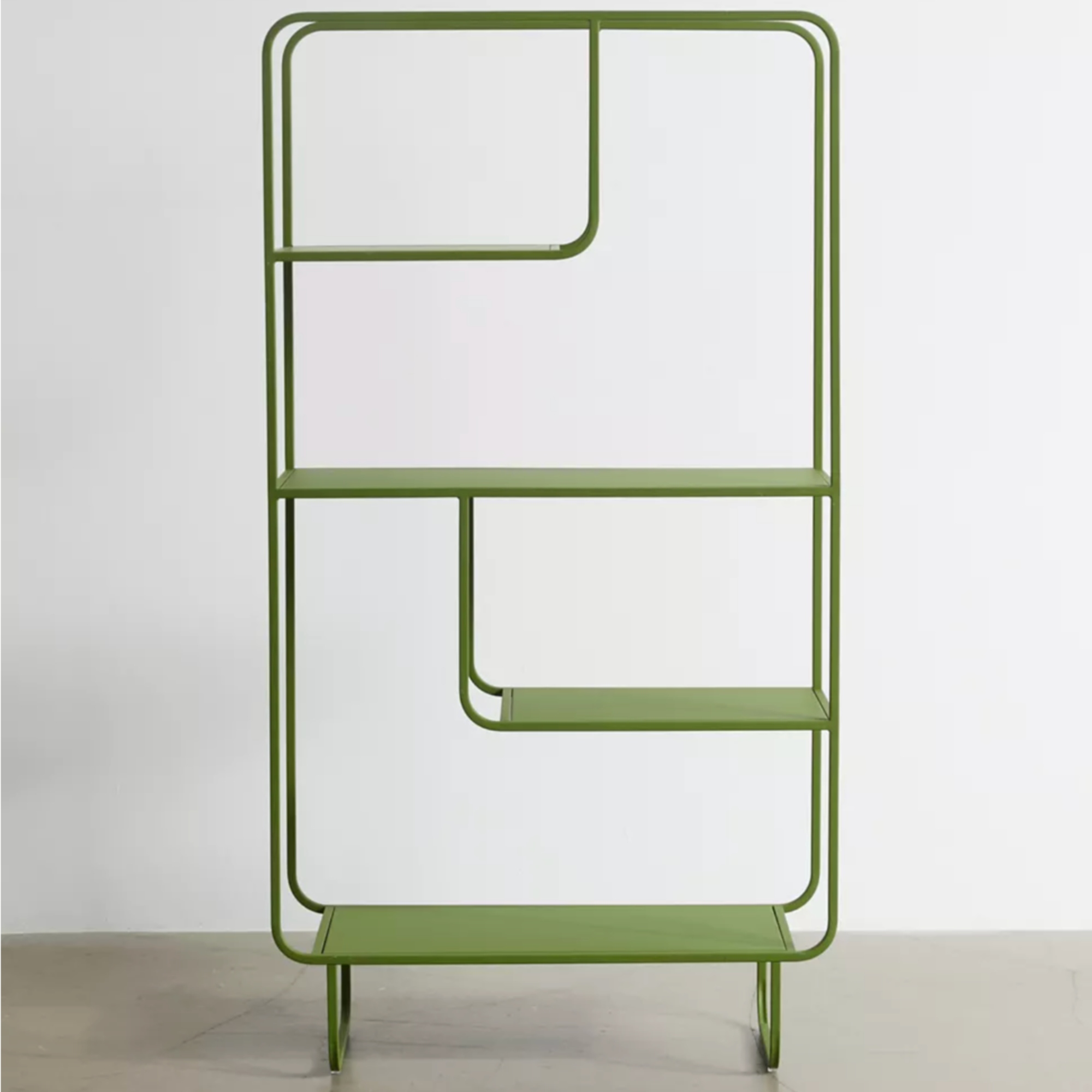
Size (in.): H56.5 x W13 x D30
Made from: Metal
Price: $299
This Urban Outfitters bookshelf is to die for with its industrial aesthetic and cool, curved modular formation. A cool twist on a traditional bookshelf for first homes, this powder-painted metal centerpiece packs punch. The extra space is calling for some of the best trailing indoor plants to complement the spines of your favorite books.
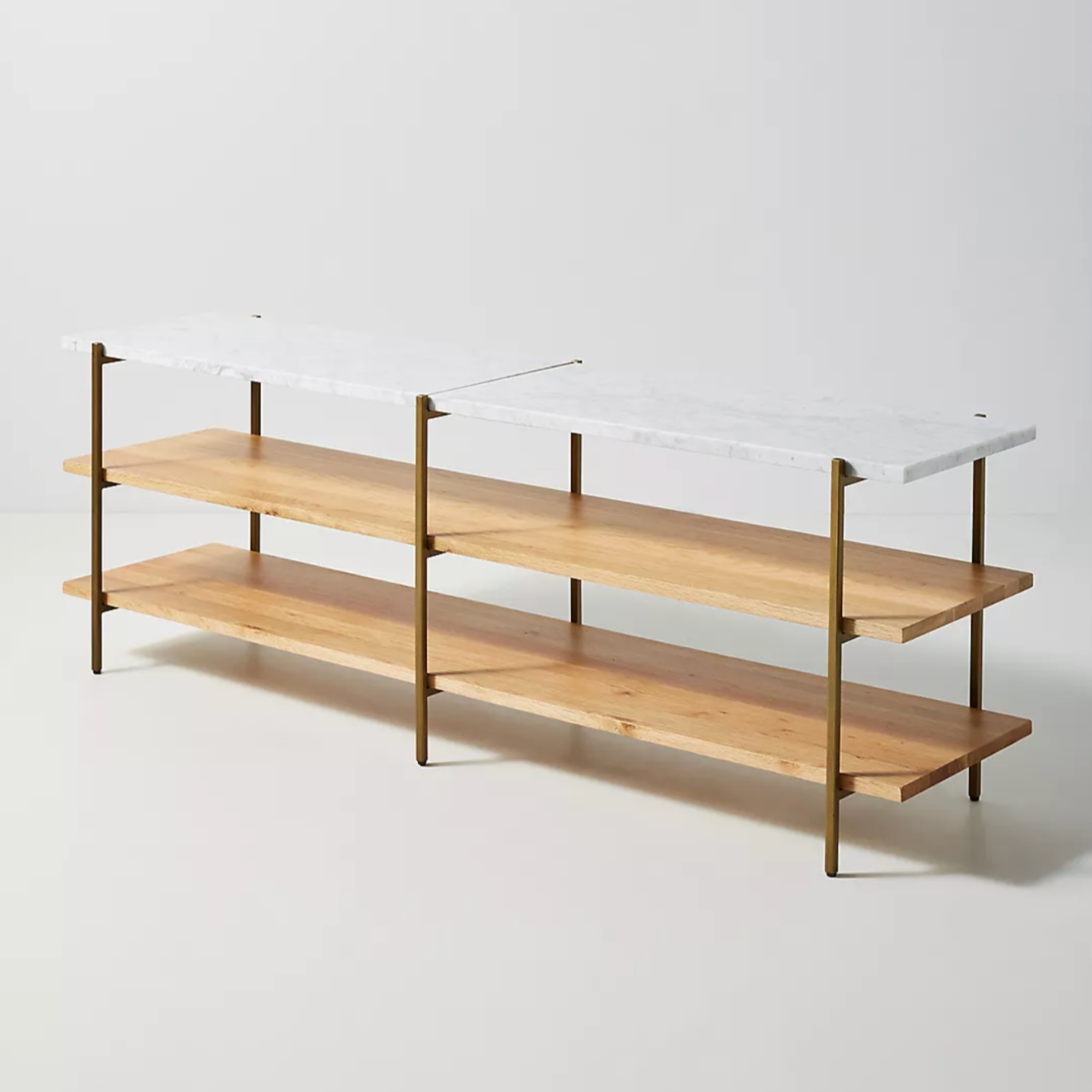
Size (in): H25 x W74 x D18
Made from: Natural oak and white marble
Price: $1498
The low height profile of this unit begs for a gallery wall above it so pair with your favorite images, art and family photos to make your space feel truly yours. This slim-line oak and marble is an online exclusive at Anthropologie and can be styled as a bookshelf but also would work as a TV stand, console table, or display unit for just about anything.
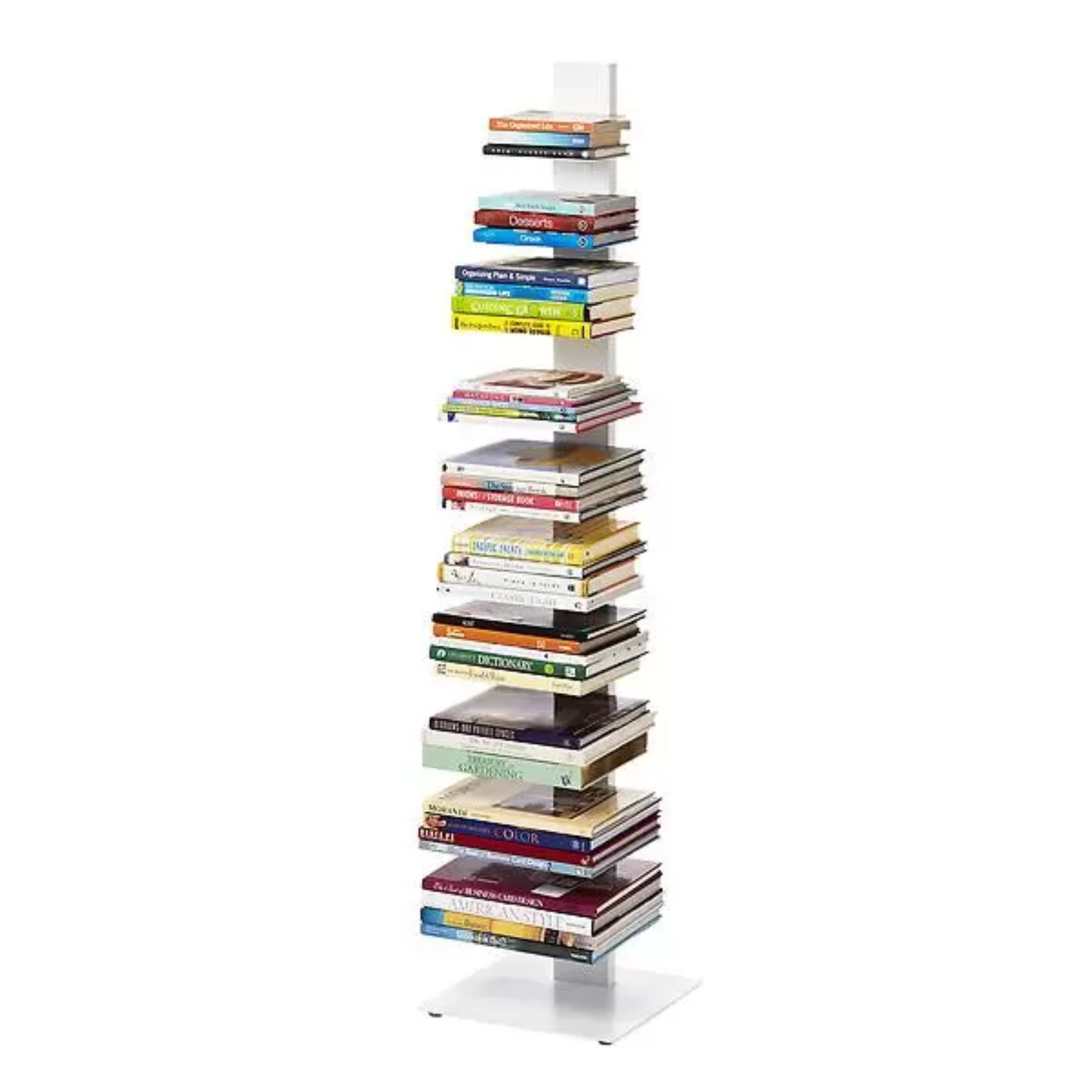
Size (in.): H60
Made from: Steel
Price: $249.99
Matilda eat your heart out, this is every book lover's dream. Perfect for small spaces as it doesn't take up much floor space but delivers lots of vertical storage space. We love the way the shelves disappear if you stack enough books. You can also pop plants or photos on some of the shelves to triple up on functionality. This gorgeous, Italian-designed, free-standing floating shelf will give your rental a contemporary flare and make a minimalist statement.
3. Finding your apartment
Once you’ve finalized your budget, we recommend using reputable websites to find your first city apartment. This is your safest bet for avoiding scams and swerving unsatisfactory housing conditions.
Most sites have pretty fantastic search parameters, where you can specify your chosen apartment necessities. This ranges from your selected neighborhoods and minimum and maximum budget, as well as any non-negotiable requirements you may have, such as in-unit laundry facilities, and the number of bedrooms from a studio apartment and beyond.
From here, scope out the market, readjust your priorities if your budget doesn’t stretch as far as you’d hoped, and create a shortlist of places you can see yourself living in.
4. How to find roommates

Living with roommates is a great way to make friends in a brand new big city, plus, sharing a space saves a little cash each month. In major US cities, particularly New York and Los Angeles, monthly rental costs have been ever-increasing and living solo has been an ever-decreasing experience for those in their 20s looking to rent a first apartment.
Using reputable websites like spareroom.com and diggz.co will help you if you’re moving to a new city for work and perhaps you don’t know anyone yet, whilst simultaneously avoiding potentially dangerous renter scams with their vetted profiles.
Instagram and Facebook will also be your new partners in crime; searching for roommates in localized groups, such as @friendzny and Los Angeles Roommates, is an amazing way to communicate with like-minded people, often offering opportunities for both long and short-term lets and sublets.
These social media renter platforms exist for a ton of major cities, including, but not limited to; Boston, Chicago, Austin, and Seattle, and can even be as specific as particular neighborhoods.
If you do have the financial means to rent your own space, you’ll benefit from the sole use of your communal space and the ability to decorate your apartment, with renter-friendly DIY fixes, of course, to your personal taste.
However, if you don’t, I had an incredible experience living with pals during my first big-city rental experience. When I was looking for a new place to call home, I buddied up with two friends from my freshman dorm and we then shared a three-bedroom home for a year. We did not have the budget to decorate our space ourselves and made do with landlord-provided furniture but, boy, did we have a lot of fun.
Eve Smallman, content editor for Real Homes, found her roommates online after living in dorms. “I used online site Spareroom to find a — you guessed it — spare room in a house share.”
She continues, “At every viewing I made sure to meet a couple of the housemates in order to get a feel for the vibe in the house and make sure I’d be comfortable living there.”
Throughout my 20s, I have lived on my own and with roommates. There are certainly pros and cons to both — not least bickering about whose turn it is to take out the trash — but, personally, I would choose roommates every time as I love the feeling of a busy home and the chatter that comes with it. This isn’t always the case, though.
“I live in a quiet, one bedroom apartment with my partner and find the cozy atmosphere really calming," says Emily. "While less space to work with can be a drawback, having less people in the house means we can really make it our own and settle in."
5. Attending viewings, signing contracts, and getting the keys
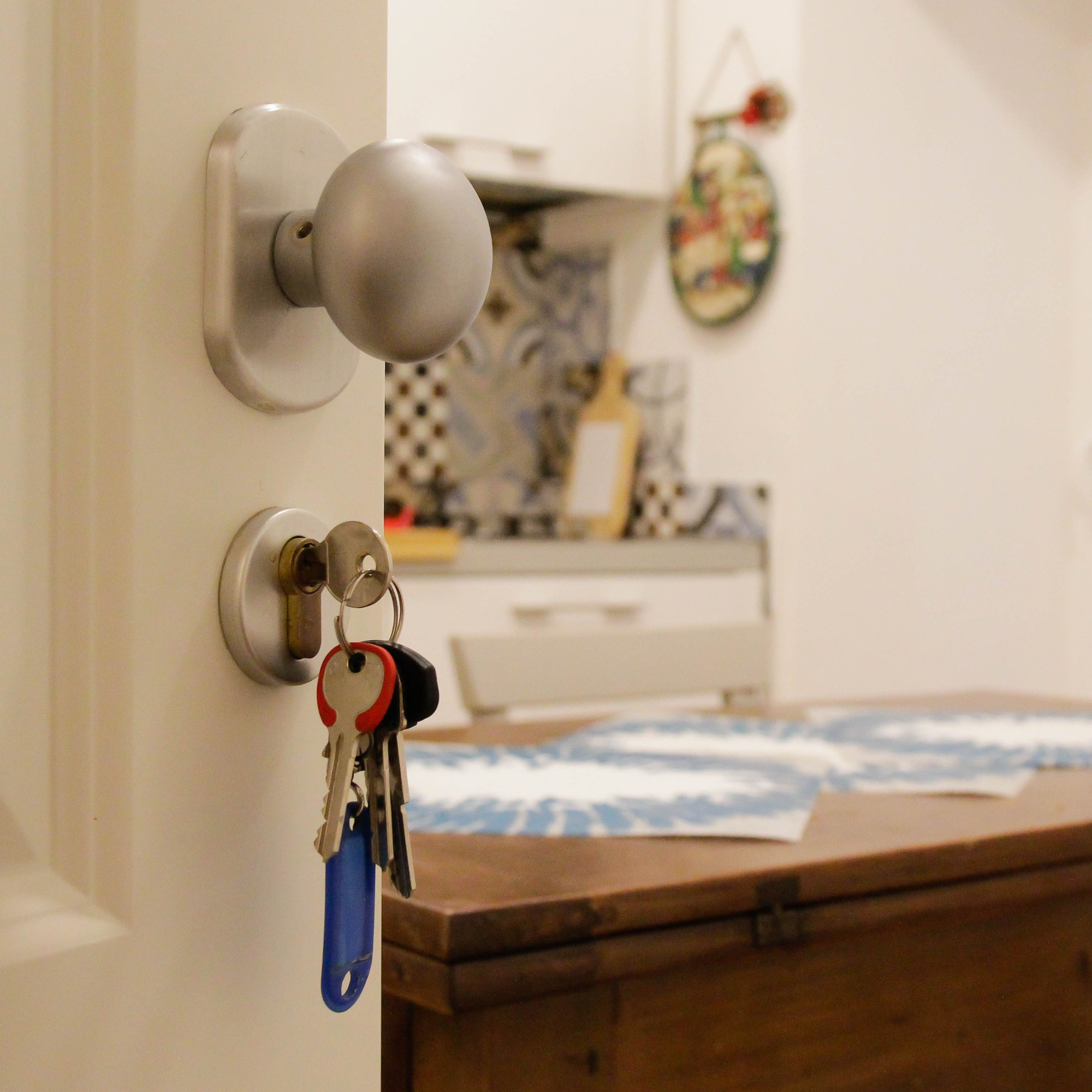
Searching for an apartment within your budget is one thing, but actually securing an apartment in a big city is quite the other. The rental market in metropolitan hubs is fast-paced, cut-throat, and, at times, demoralizing (remember: we've been there and are proof it all comes together in the end).
As soon as you spot a new apartment listing online, contact the realtor or individual listing the room as soon as possible. If you already think that life moves quickly in cities, times that speed by 100 for the rental market.
It’s imperative that you keep checking your chosen rental portals every single day and arrange your viewings, whether they are virtual or in person, as soon as possible.
Punteha advises that when she was searching for her two-bedroom apartment to have space to welcome guests, she would schedule between 10 and 20 viewings to attend in one go within a couple mile radius for when she had time off work or over the weekend.
“It was exhausting but so productive as it quickly helped us rule areas, styles, and essential apartment features in and out,” she explains. “We also did a mix of big real estate agent bookings, and small-family run independent realtors who had access to cool listings exclusive to them. "
Punteha ended up finding her first apartment through an independent agent recommended by a local friend. "He agreed to give us first refusal on new listings," she says, "and we signed our apartment up before it went online, helping us beat the gazumping madness."
Prepare yourself to get knocked back, offer more than the asking price, and line up with hoards of other hopefuls at an open house viewing, all with one goal: securing the very same tenancy as you.
When you’re viewing a potential new pad, keep an apartment inspection checklist of red flags to look out for, which should dissuade you from placing an offer. Check out the shower. How is the water pressure? Are there any signs of damp or pre-existing damage? Or does the landlord seem a little shifty about contracts?
Emily advises, “Make sure you’re able to give the apartment a thorough viewing before putting a deposit down. Go around and photograph everything and take note of anything that may look out of place like a chipped door or loose handle. Always get everything in writing and keep a record of any changes made to the apartment."
Eve adds, "I rented my property in a very competitive area, so I was keen to say yes to the house as soon as I could. That being said, I still took my time asking the estate agent the history of the property and any issues the landlord had experienced while renovating. If you ask any questions and are given vague or unrealistic answers, it’s definitely best to move on and find somewhere else."
Once you’ve found your dream pad, your offer has been accepted, and there are no signs of any potential rental issues, it’s time for contracts.
It’s essential to have a tenancy agreement in place, outlining the cost per month, length of your tenancy, pet policy, and eviction or leaving notice periods. Be sure that the contract includes every person who will be living in the household so that you can all sign on the dotted line — this step is vital in the rare case that there should be a legal dispute between yourselves or the landlord later down the line.
So, your contract is now signed, sealed, and delivered to your new landlord. Guess what that means? You’ve made it!
The relief I felt at this stage of the first-time rental process was unmatched by anything I’d felt before. Whether your path to securing the keys was via countless roommate interviews, online viewings, or in-person open houses, it’ll likely feel the same. This experience certainly isn’t for the faint of heart, so raise a glass to your success. But don’t get too comfortable, it’s time for the much sweeter task of planning your interior decor choices, getting ready with that moving-in checklist and learning how to decorate your new apartment on a budget.
Join our newsletter
Get small space home decor ideas, celeb inspiration, DIY tips and more, straight to your inbox!

Hi! My name is Luisa, and I’m the Social Media Editor at Real Homes. I live in a rented home in the city with my three roommates and I are always looking for renter-friendly ways to personalize our space. We also have a small but unruly garden, which we spend our spring and summer weekends working on. Previously, I renovated my own tiny apartment in my hometown, where I learned how to DIY from scratch thanks to trial, error and YouTube tutorials. My interior style primarily hinges on which pieces of mid-century furniture I can thrift and I center my aesthetic around staple vintage pieces and eclectic art.
-
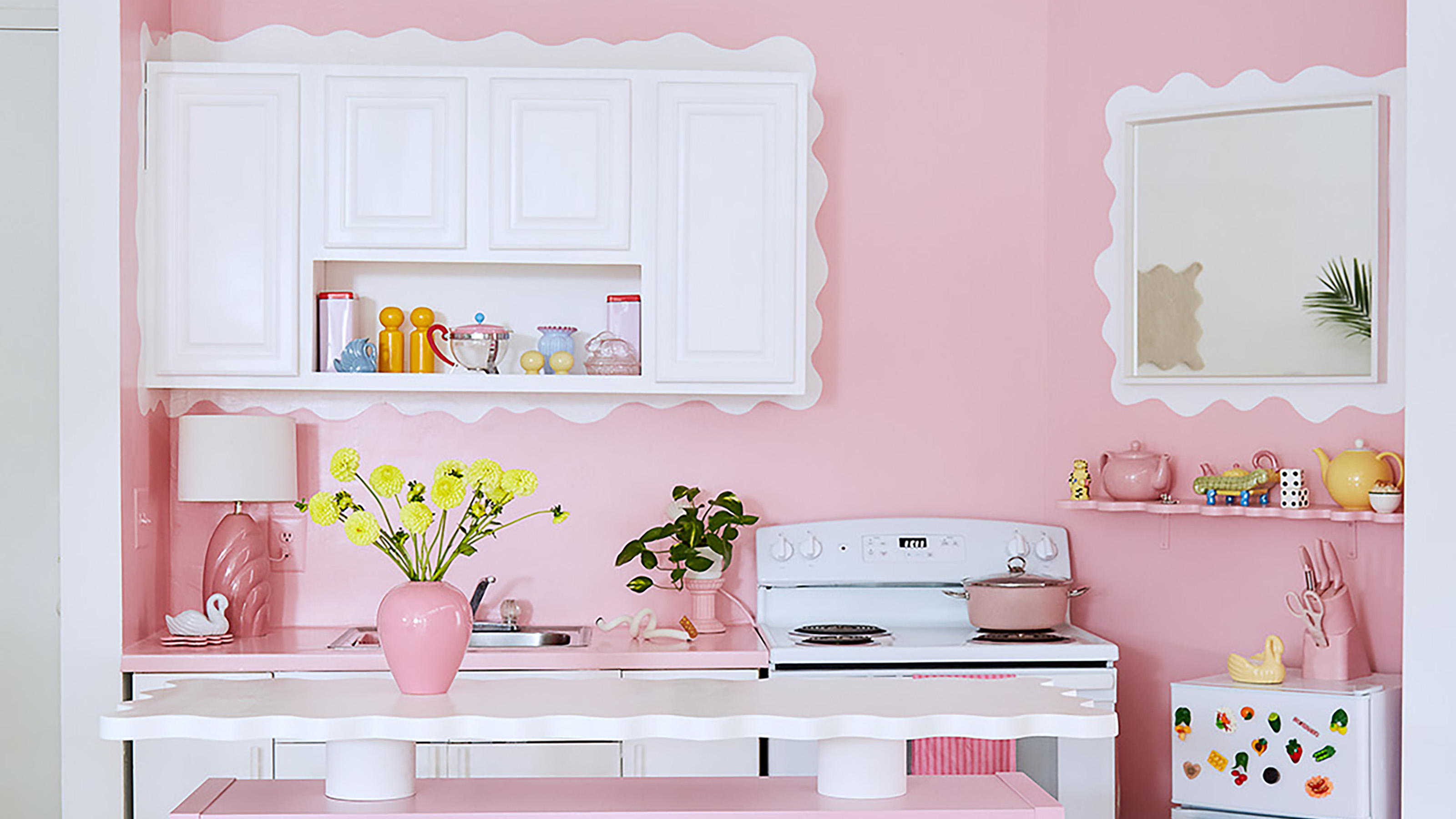 This furniture designer's pink loft apartment will make color minimalists rethink their spaces
This furniture designer's pink loft apartment will make color minimalists rethink their spacesFurniture designer Sophie Collé's apartment is a whimsical pink dream. Here's where her inspiration comes from and where she found her decor
By Camille Dubuis-Welch
-
 11 questions to ask when renting an apartment
11 questions to ask when renting an apartmentWhat questions should you be asking when renting an apartment? See everything you need to know before you sign that dotted line with our expert guide.
By Jamie Ballard
-
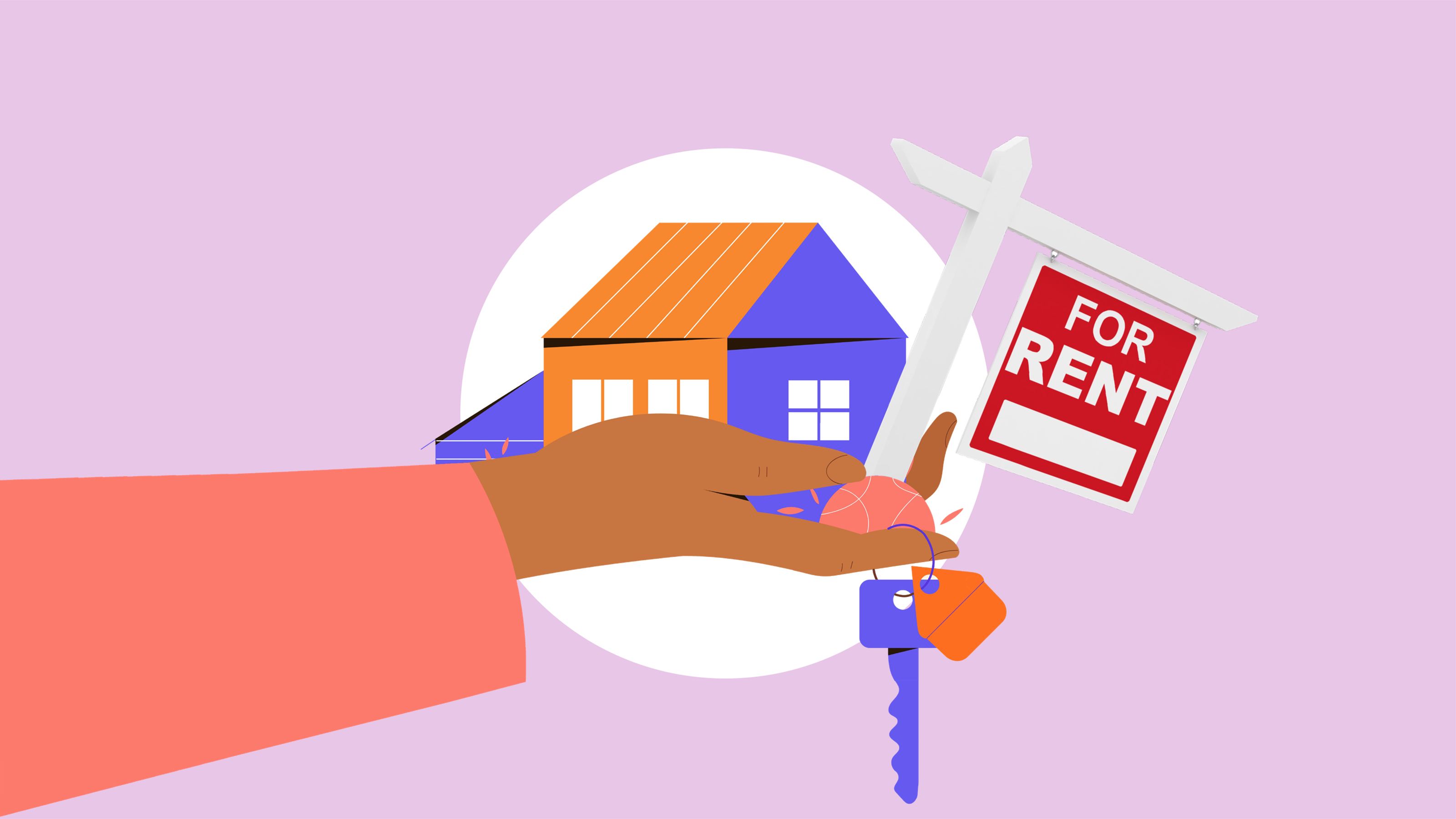 Why I choose to be a forever renter. Magnolia walls and all.
Why I choose to be a forever renter. Magnolia walls and all.Renting vs buying: Why I'm happy not being a homeowner.
By Anna K. Cottrell
-
 How to rent a house or apartment successfully: first rental or not
How to rent a house or apartment successfully: first rental or notWhether it's your first time as a tenant or not, knowing the ins and outs of how to rent a house or apartment is a must for a smooth ride.
By Andrea Dean
-
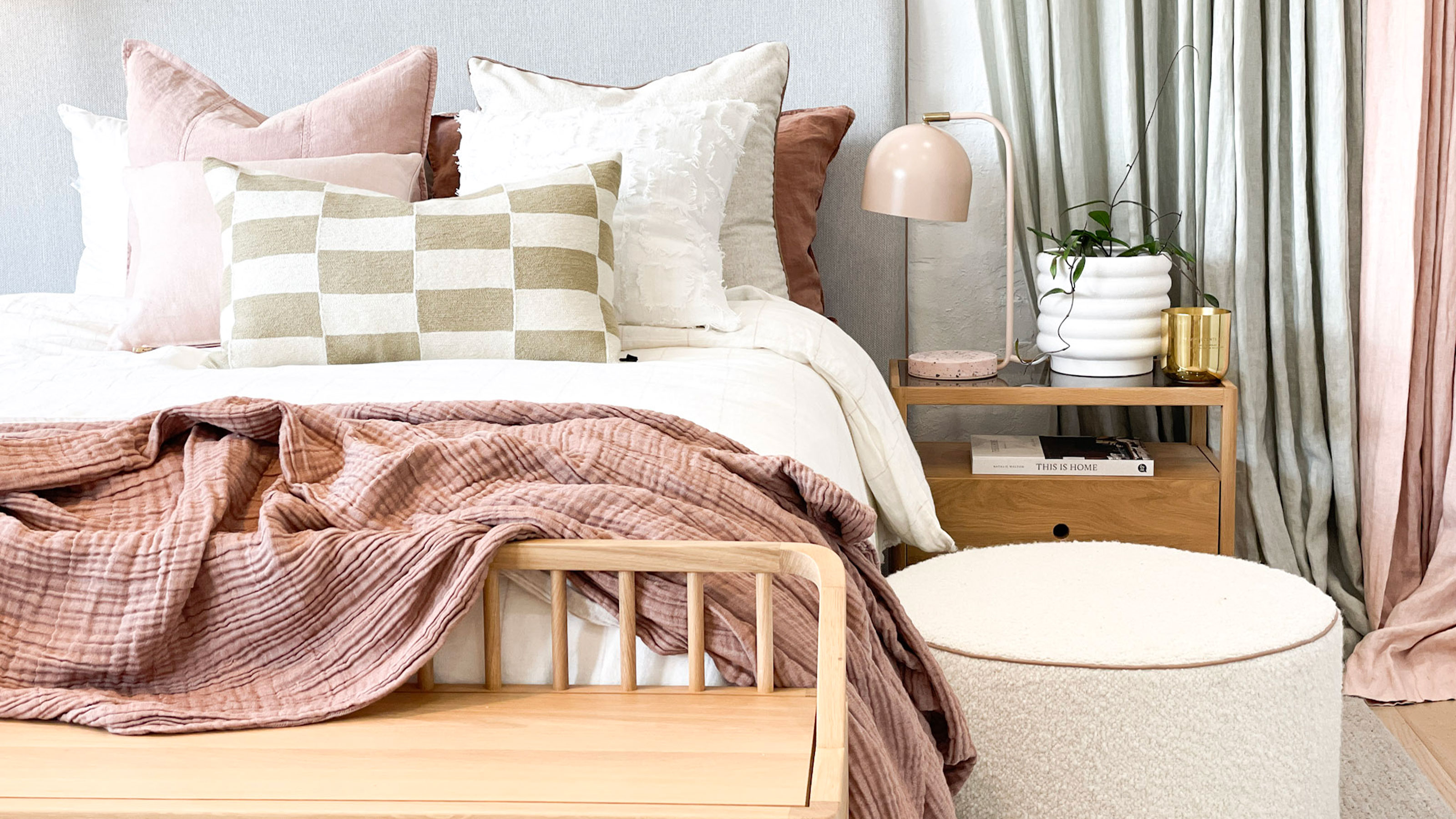 The five cities where rents are going down in the US
The five cities where rents are going down in the USA new report shows the cities where rents are actually going down in price
By Millie Hurst
-
 Renters: now you can review your landlord, good or bad
Renters: now you can review your landlord, good or badMarks Out Of Tenancy lets you rate your landlord, estate agent, and property so future renters know what they're getting into – and to ensure standards are kept high
By Anna Cottrell
-
 Home ownership remains an aspiration for renters, but the majority don’t think they will ever own their own home
Home ownership remains an aspiration for renters, but the majority don’t think they will ever own their own homeRenters are increasingly disillusioned by a system that gives them no chance to get on the property ladder – but not with the idea of home ownership itself, latest stats show
By Anna Cottrell
-
 Cohabiting couples are the fastest growing family type, and couples wait just 19 months on average to move in
Cohabiting couples are the fastest growing family type, and couples wait just 19 months on average to move inThere are more unmarried couples living together than ever before, but the time it takes them to cohabit varies regionally
By Anna Cottrell